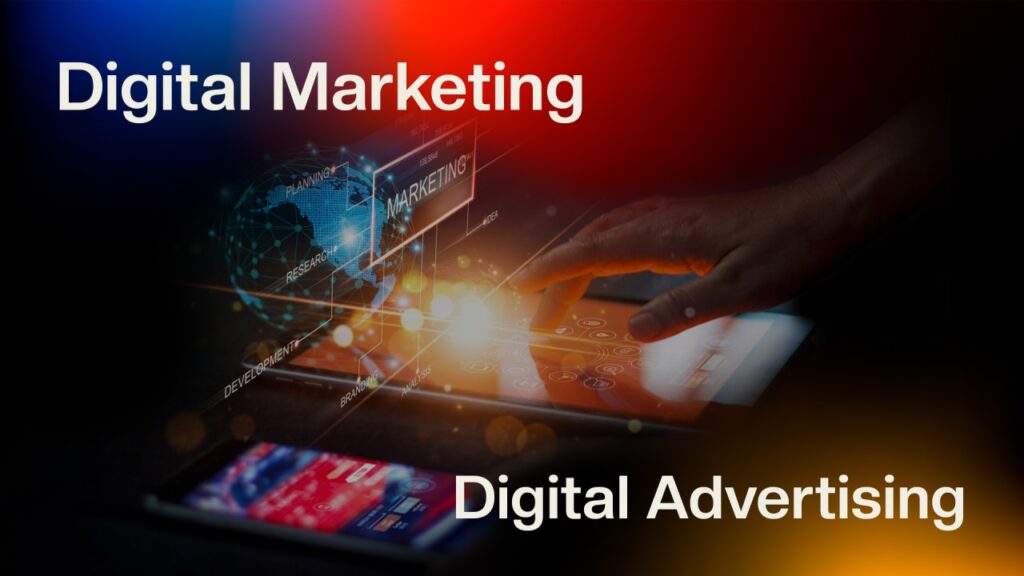Strategies and Trends in Digital Marketing Advertising
Digital marketing advertising has evolved into a dynamic and essential component of modern business strategies. In a landscape where consumers are increasingly online, leveraging digital channels for advertising is imperative for reaching and engaging target audiences. This comprehensive guide explores strategies, trends, and key considerations in digital marketing advertising to help businesses navigate the intricacies of the digital landscape.
Search Engine Marketing (SEM):
- SEM involves promoting a website by increasing its visibility in search engine results through paid advertising. This includes Pay-Per-Click (PPC) campaigns, where advertisers bid on keywords to have their ads displayed when users search for specific terms. Google Ads and Bing Ads are popular platforms for SEM.
Social Media Advertising:
- Social media platforms provide a vast and targeted audience for digital marketing advertising. Platforms like Facebook, Instagram, Twitter, LinkedIn, and Pinterest offer robust advertising solutions. Businesses can create highly targeted ads based on demographics, interests, and behaviors, maximizing the impact of their campaigns.
Display Advertising:
- Display advertising involves creating visually appealing banner ads, video ads, or interactive ads that are displayed on websites and apps. Display ads can be targeted based on user behavior, demographics, or interests, making them an effective way to reach a specific audience.
Content Marketing and Native Advertising:
- Content marketing involves creating valuable and relevant content to attract and engage an audience. Native advertising seamlessly integrates promotional content into the user experience, providing a non-disruptive way to deliver brand messages. This approach is particularly effective in building brand awareness and trust.
Influencer Marketing:
- Leveraging influencers—individuals with a significant and engaged following on social media—has become a powerful strategy. Collaborating with influencers allows brands to tap into existing communities and benefit from the trust influencers have established with their audiences.
Email Marketing:
- Email marketing remains a potent tool for digital advertising. Through targeted email campaigns, businesses can nurture leads, communicate promotions, and build ongoing relationships with their audience. Personalization and segmentation are key elements for successful email marketing.
Video Marketing:
- Video content has surged in popularity, and platforms like YouTube, TikTok, and Instagram provide excellent opportunities for video marketing. Businesses can create engaging video ads, tutorials, product demonstrations, or even long-form content to connect with their audience in a visually compelling way.
Programmatic Advertising:
- Programmatic advertising uses automated systems to buy and optimize digital ad placements in real-time. This method relies on algorithms and data to target audiences more precisely and deliver ads at the right moment, enhancing efficiency and effectiveness.
Augmented Reality (AR) and Virtual Reality (VR):
- Emerging technologies like AR and VR are shaping the future of digital marketing advertising. Brands can use AR to create interactive and immersive experiences for users, while VR offers opportunities for virtual product demonstrations and unique brand engagement.

Data Privacy and Compliance:
- With increasing concerns about data privacy, businesses must prioritize compliance with regulations such as the General Data Protection Regulation (GDPR) and the California Consumer Privacy Act (CCPA). Transparent communication about data usage and obtaining user consent is critical in building trust.
Analytics and Measurement:
- Digital marketing advertising success is contingent on data analysis. Utilize analytics tools to measure the performance of campaigns, track key performance indicators (KPIs), and gain insights into user behavior. Regularly assess and adjust strategies based on data-driven findings.
Conclusion:
Digital marketing advertising is a dynamic and evolving field that offers businesses unprecedented opportunities to connect with their target audience. By leveraging diverse channels, embracing emerging technologies, and staying attuned to data-driven insights, businesses can create impactful and effective digital advertising campaigns. As the digital landscape continues to evolve, a strategic and adaptable approach will be key to staying ahead and achieving sustainable growth in the competitive online marketplace.